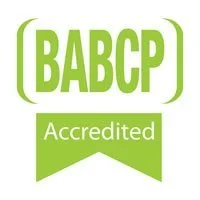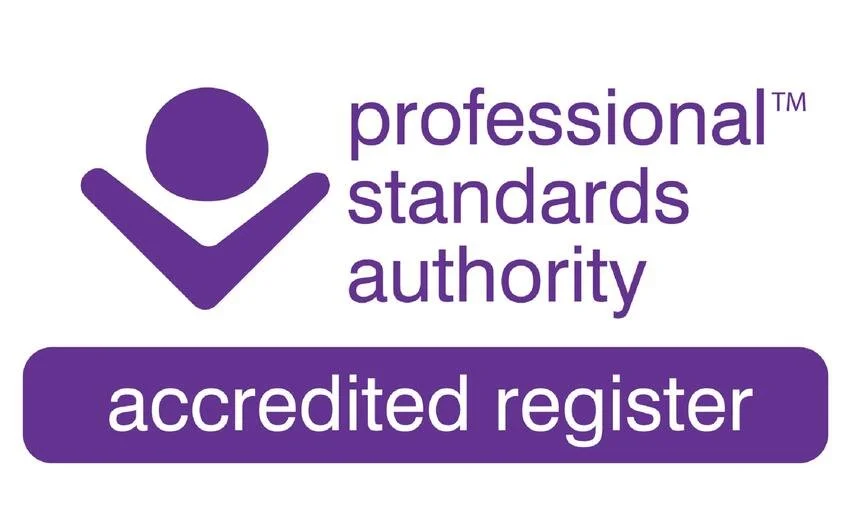Hello, I’m Sophia!
I’m a therapist and coach with a background in politics and social psychology. I am also a clinical advisor for Social Anxiety Alliance UK.
I work at the intersection of social, and clinical psychology, because how you experience yourself - your confidence, voice, and sense of belonging - doesn’t exist in a vacuum.
It’s shaped by your nervous system, your relationships, and the social worlds you move through.

A bit about how I work — and why
My background isn’t purely clinical. Before training as a therapist, I studied politics and social psychology, which deeply shaped how I understand social dynamics.
I interned at the Texas State Capitol during university, then ended up working in the British Government afterwards. Meanwhile, I had always had an interest in mental health and clinical psychology and pursued these interests outside of work.
I became interested in intersection between clinical (mental health) and social psychology: how power, belonging, and identity quietly shape who feels entitled to speak, to take up space, or to be seen - and who learns to stay alert, adaptable, or invisible.
Eventually I career changed into psychotherapy and spent 5 years in the NHS before working privately. My work now sits at the intersection of social and clinical psychology, because the way you show up in the world is shaped by all three: your internal nervous system, how evolutionary we are primed to care about status/belonging, and the social contexts you navigate.
You can learn more about the various psychological theories that inform my work in my podcast.
Social Psychology
Social psychology is the study of how individual or group behaviour is influenced by the presence and behaviour of others.
Clinical Psychology
Clinical psychology applies psychological science to assess and treat mental health difficulties that result in emotional and behavioural consequences.
My therapeutic approaches
Top Down Therapies: Working with cognitions & behaviour to impact brain and body
-
CBT (Cognitive Behavioural Therapy) is a well-researched treatment proven effective for social anxiety and related issues, including through Virtual Reality Exposure Therapy. It's one of the most evidence-based therapies available and is commonly offered through the NHS.
The therapy works by examining connections between your thoughts, emotions, behaviours and physical sensations to break unhelpful cycles. Rather than being a one-size-fits-all approach, CBT is tailored to specific conditions—the treatment for social anxiety differs significantly from that for depression.
While some people may have tried CBT previously without success, this could be because they didn't receive the most current, specialised form of CBT for social anxiety. However, it's also possible that CBT simply isn't the right fit for everyone.
Read more here.
-
ACT (Acceptance and Commitment Therapy) is an evidence-based therapy that focuses on accepting our emotions rather than struggling against them. Instead of viewing difficult feelings as problems to solve, ACT helps you move forward with your values and goals while acknowledging these emotions.
Research shows ACT is effective for social anxiety and can be used either on its own or alongside CBT.
-
CFT (Compassion Focused Therapy) is a newer approach particularly suited for those experiencing self-criticism and shame—common features of social and performance anxiety. Drawing from neuroscience, evolutionary psychology and Buddhist traditions, CFT helps people develop a healthier relationship with themselves.
The therapy works with three emotional systems: threat (protection), drive (motivation) and soothe (calmness). People struggling with self-criticism often fluctuate between threat and drive states. CFT teaches skills to balance these systems and cultivate genuine self-compassion, even though this may feel challenging at first.
-
Virtual Reality Exposure Therapy (VRET) is an evidence-based treatment that can significantly reduce social anxiety symptoms. It allows you to experience challenging social situations—like public speaking or interviews—in a controlled environment, triggering the same emotional responses as real-life scenarios.
I partner with oVRcome, a therapeutic VR provider newly available in the UK. Sessions are delivered remotely using either your own VR headset or a provided device that works with your smartphone. I typically combine VRET with CBT for optimal results.
Bottom Up Therapies: Working with the brain and body, to impact cognitions and behaviour
-
Eye Movement Desensitisation and Reprocessing (EMDR) is a powerful therapeutic approach originally developed for trauma but now proven effective for anxiety disorders, including social anxiety.
EMDR helps your brain reprocess negative memories and beliefs that fuel social anxiety, allowing you to develop healthier perspectives and responses to social situations.
Unlike traditional talk therapy, EMDR works directly with your brain's information processing system, targeting the root causes of your anxiety rather than just managing symptoms. This makes it particularly effective for social anxiety that hasn't responded well to other treatments.
Read more here.
-
Somatic therapy is a mind-body approach based on the understanding that traumatic experiences—including social traumas like public speaking mishaps or bullying—can become trapped in the body. Unlike traditional therapies that begin with the mind, somatic work starts with the body, helping you develop a safer relationship with physical sensations.
While still building its evidence base, somatic therapy shows promise, particularly for those experiencing strong physical symptoms during social situations. As a qualified yoga teacher, I've witnessed the effectiveness of body-based approaches and may incorporate somatic techniques alongside evidence-based therapies where appropriate.
-
Polyvagal theory explains how our nervous system—particularly the vagus nerve—influences our wellbeing and social interactions. It describes three interconnected states: fight or flight, shut down, and social engagement.
While not a therapy itself, this theory helps explain why those with social anxiety might struggle to feel socially connected. I incorporate these insights into my therapeutic approach to help you better understand your nervous system's responses.
Research shows ACT is effective for social anxiety and can be used either on its own or alongside CBT.
-
IFS (Internal Family Systems) views our minds as consisting of multiple sub-personalities or 'parts'. This approach helps understand internal conflicts—like when one part of you feels one way, while another part feels differently.
While building its evidence base, IFS focuses on creating harmony between these different aspects of ourselves. Though not a standardised protocol like some therapies, I may incorporate IFS concepts alongside evidence-based approaches like CBT, ACT, or CFT where beneficial.
-
Brainspotting is a newer brain-based therapy that evolved from EMDR (Eye Movement Desensitisation and Reprocessing). Originally developed to help athletes overcome performance blocks, it works by identifying specific eye positions ('brainspots') that help process difficult memories and reduce current symptoms.
While still building its evidence base, Brainspotting shows promise for addressing both social traumas (like bullying or public speaking difficulties) and performance-related challenges. Popular in the USA and growing in the UK, I may incorporate it alongside evidence-based therapies, particularly for clients facing high-stakes social situations.
About me - as a person
I’m British born, but my family is mixed English and Seychellois
I’ve lived in the UK, France, TX USA, and soon to be Vietnam
I have a cat called Luna who I am obsessed with and you’ll probably see in sessions
I hope to one day to a PhD, but right now, I can’t find the time!
I enjoy learning about other cultures, and love travelling despite losing all sense of rationality during airplane turbulence
I’m currently learning Spanish and aerial hoop (think of people flying around on a hoop in the circus - yes really).
I’ve struggled with anxiety, identity, belonging, confidence, and come from a place of both professional and lived experience. The more successful I have been in my career, the ‘higher stakes’ the rooms have got, and the more the work continues!
Qualifications
Primary Trainings
PGDip Cognitive Behavioural Therapy (BABCP Accredited)
LONDON CBT TRAINING CENTRE
PGDip LI Cognitive Behavioural Interventions (BABCP Accredited)
UNIVERSITY OF SURREY
MSc Psychological Sciences (BPS Accredited) (Distinction)
UNIVERSITY COLLEGE LONDON
BA (Hons) Politics (Distinction)
QUEEN MARY / UNIVERSITY OF TEXAS AT AUSTIN
Additional Trainings
EMDR Part I & II
Richman EMDR
Cognitive Behavioural Coaching (CBC)
TRANSFORMATION ACADEMY
Brainspotting Part I
BRAINSPOTTING USA
Yoga & Meditation Teacher Training
ALL YOGA INDONESIA
Polyvagal Theory & Approaches
DEB DANA (Leading therapist in Polyvagal theory)




